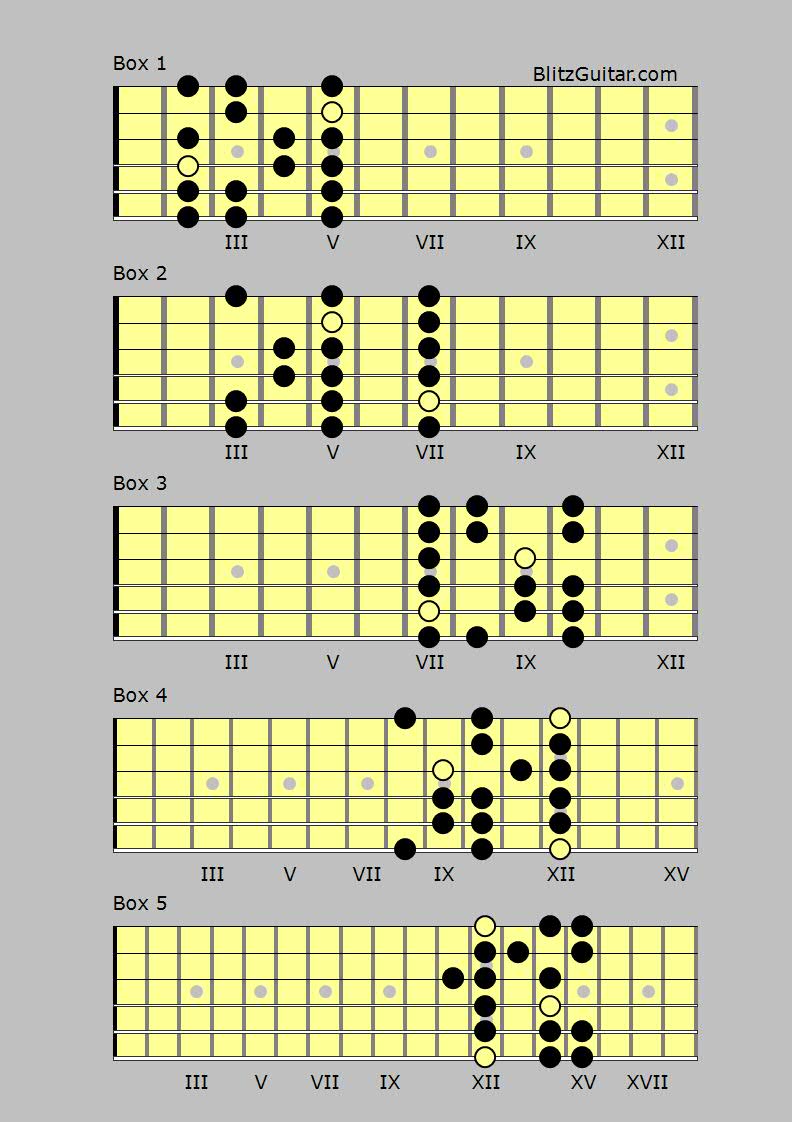
E minor scale. FINGERSTYLE GUITAR LESSONS
How to play E Minor Scale. This pattern consists of E, F#, G, A, B, C, and D - with the degrees of R, 2, b3, 4, 5, b6, and b7.Learn it on our interactive fretboard. 13,787 patterns to choose from.

Chords in E Minor (Free Chart) Professional Composers
The E Minor Scale - Natural, Harmonic and Melodic This lesson is all about the E minor scale. There are three types of minor scales and we shall take a look at all of them here. They are the natural, melodic and harmonic minor scales. E Natural Minor Scale Let's start with the E natural minor scale.
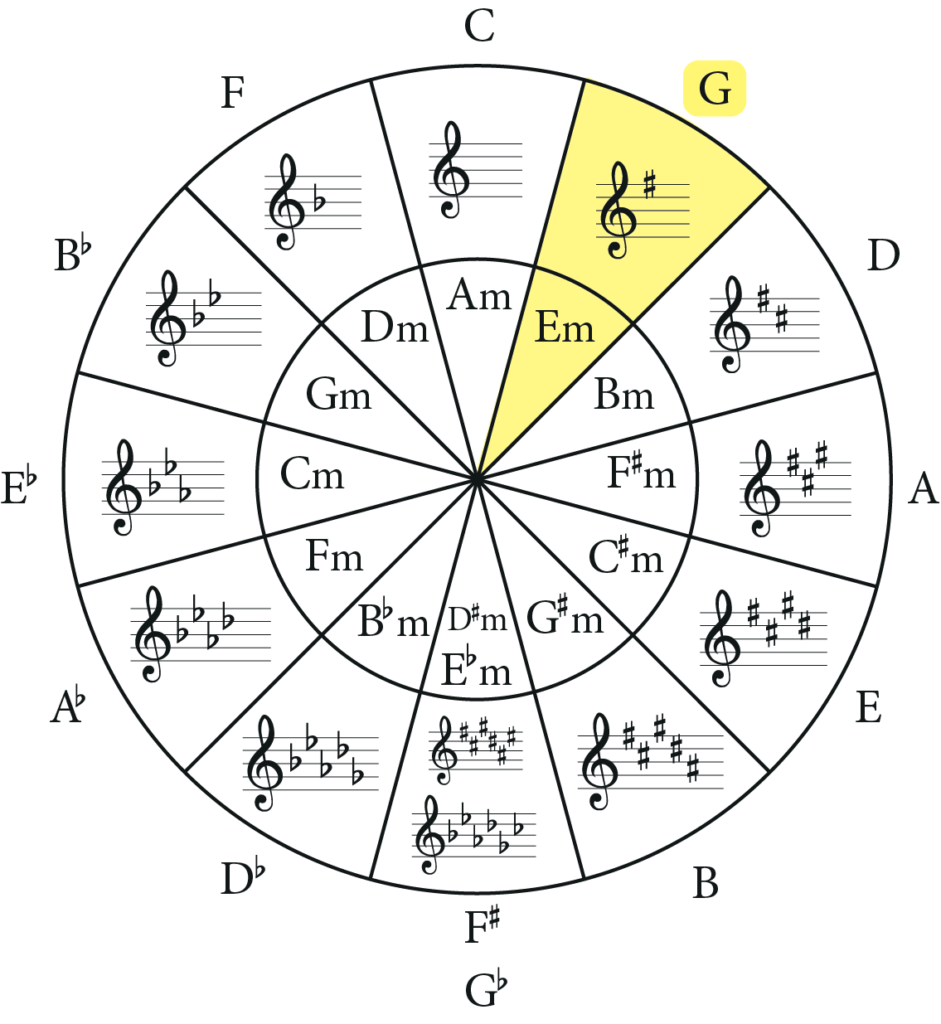
The E Minor Scale A Complete Guide Jade Bultitude
E natural minor scale This step shows the ascending E natural minor scale on the piano, treble clef and bass clef. It also shows the scale degree names for all 8 notes. The E natural minor scale has 1 sharp. This minor scale key is on the Circle of 5ths - E minor on circle of 5ths, which means that it is a commonly used minor scale key.

Bermanfaat Natural E Minor Scale References
There are three types of minor scale: the natural minor, harmonic minor and melodic minor. In this post we will stick to E Natural Minor Scale, but you learn about E Harmonic Minor and E Melodic Minor in our other articles. How is the E Natural Minor scale created?
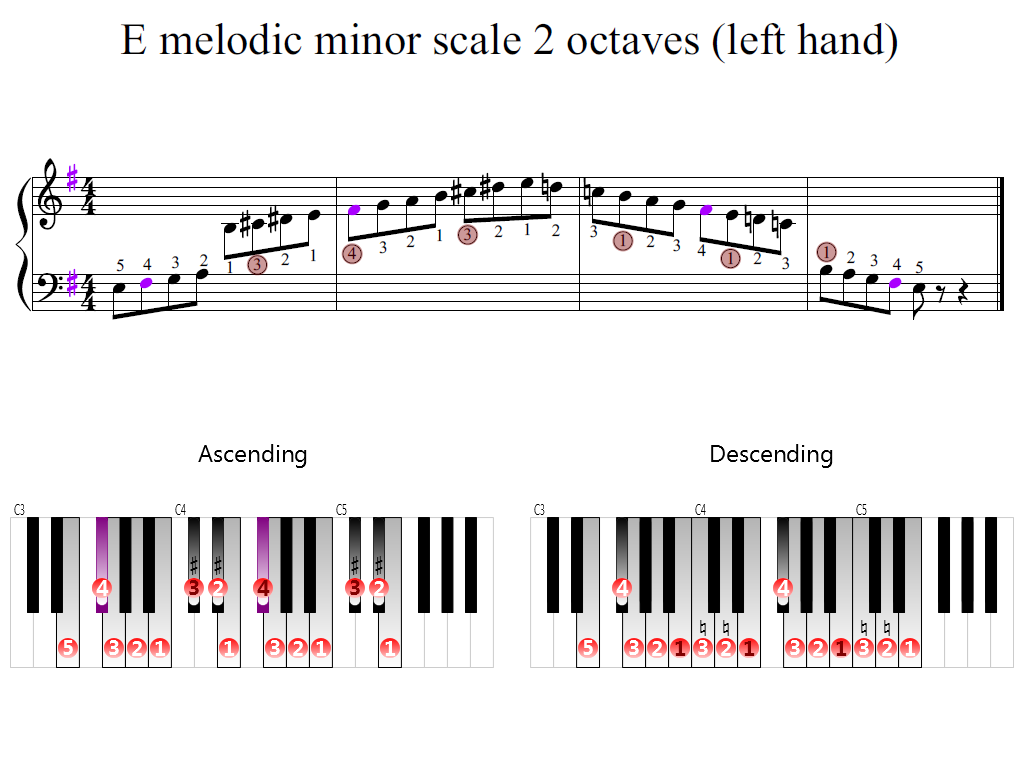
E melodic minor scale 2 octaves (left hand) Piano Fingering Figures
E Minor Scale The notes of the E Minor scale are E F# G A B C D. It's key signature has 1 sharp. Press play to listen to the scale. Click the virtual piano or the notation to hear each note. Click the clef symbol to toggle clefs. E G A B C D E F# Explore more scales Sign up for a Berklee PULSE account!
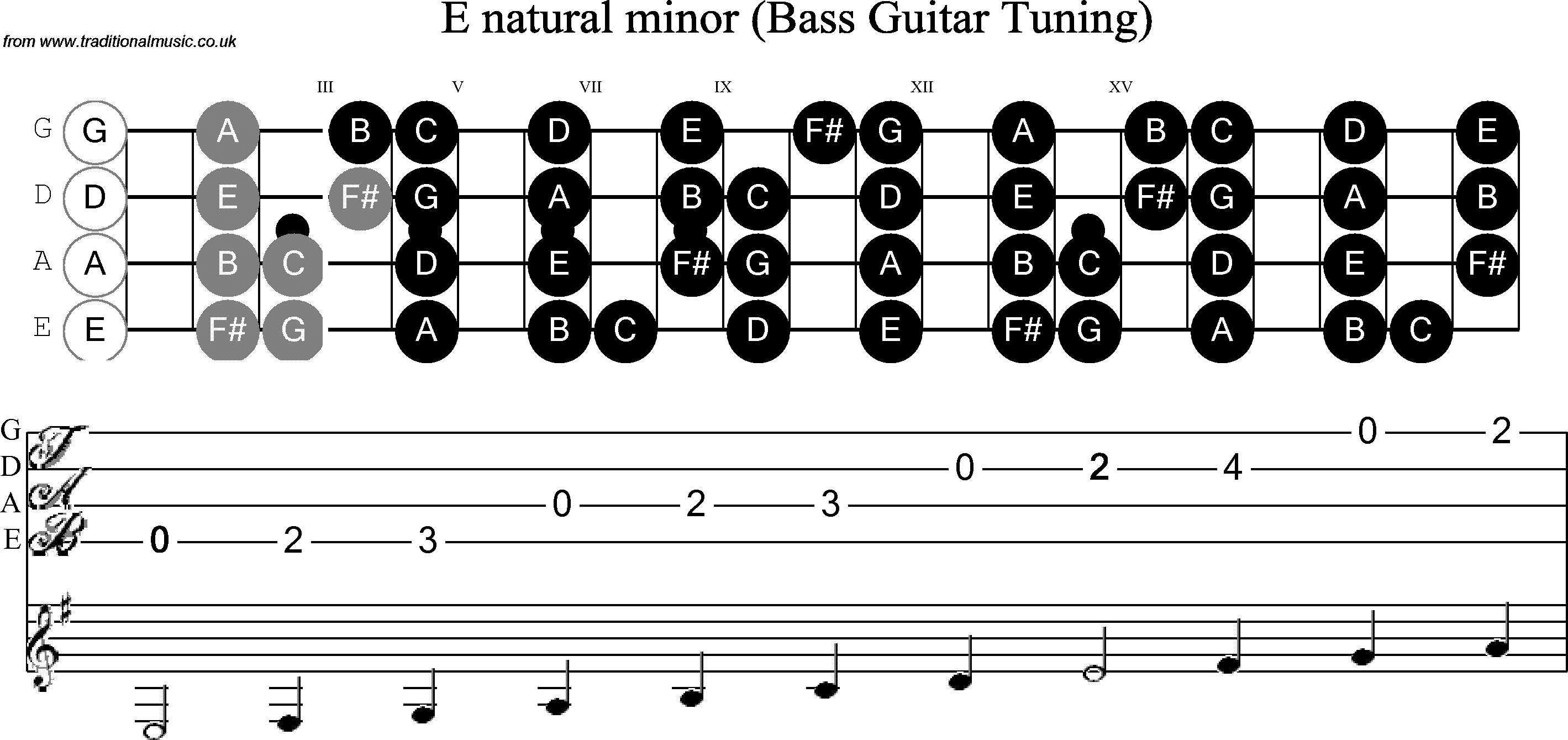
Bass Guitar Scale E Minor
Pattern 5. Dive into the E Minor Scale with Guitar Charts. Explore our interactive fretboard diagrams and listen to audio examples for each pattern. Ideal for guitarists seeking to understand and play the E Minor Scale effortlessly. Perfect for both beginners and experienced musicians.
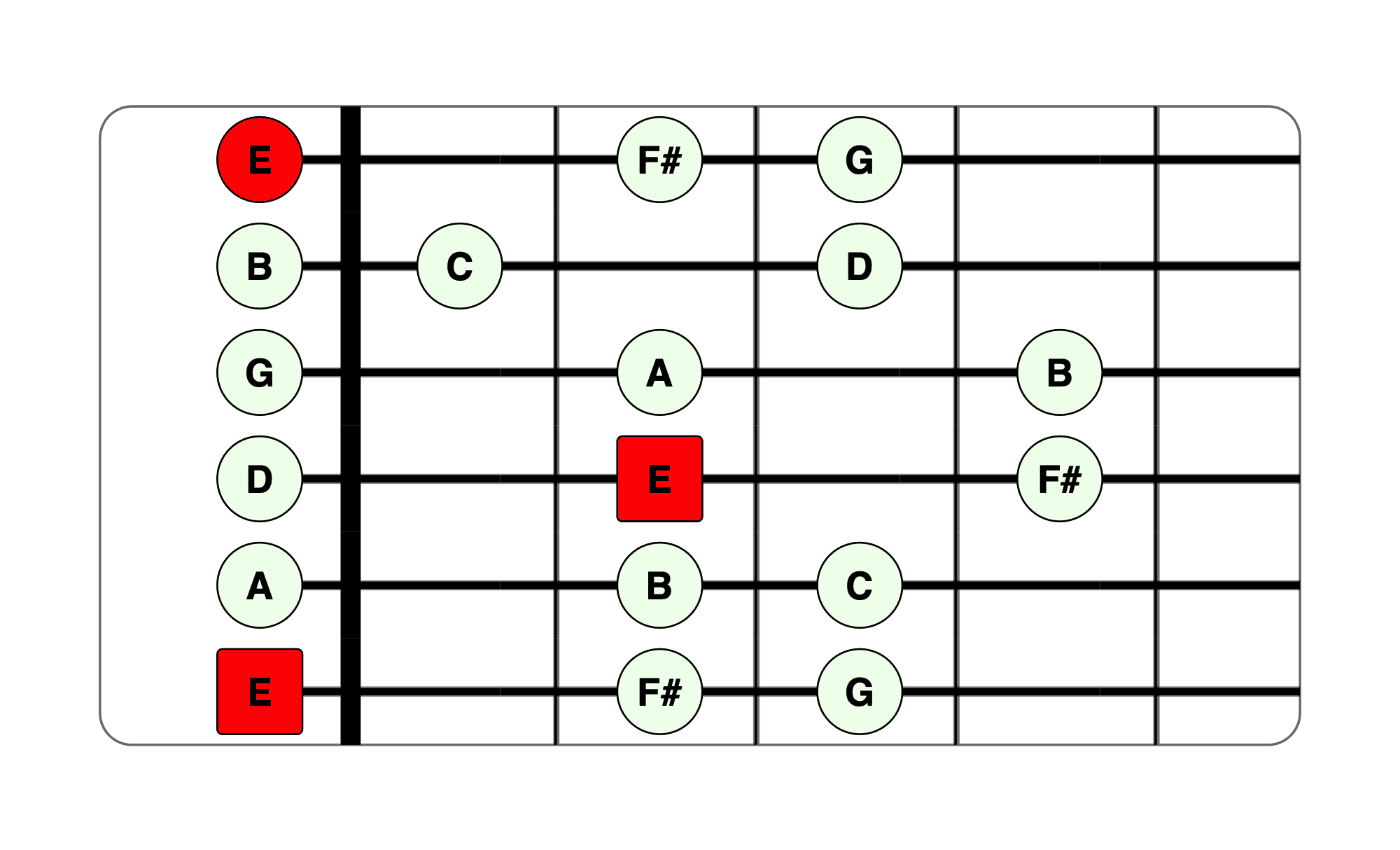
10 Essential Guitar Scales for Beginners Life In 12 Keys
The E Minor is a seven-note scale, also called Natural E Minor. Colored circles mark the tones in the diagram, with darker color highlighting the root notes. The root notes are always E tones. In the two-octave pattern, the first root note is on the 6th string, 12th fret. Full fretboard E Minor 2 octaves
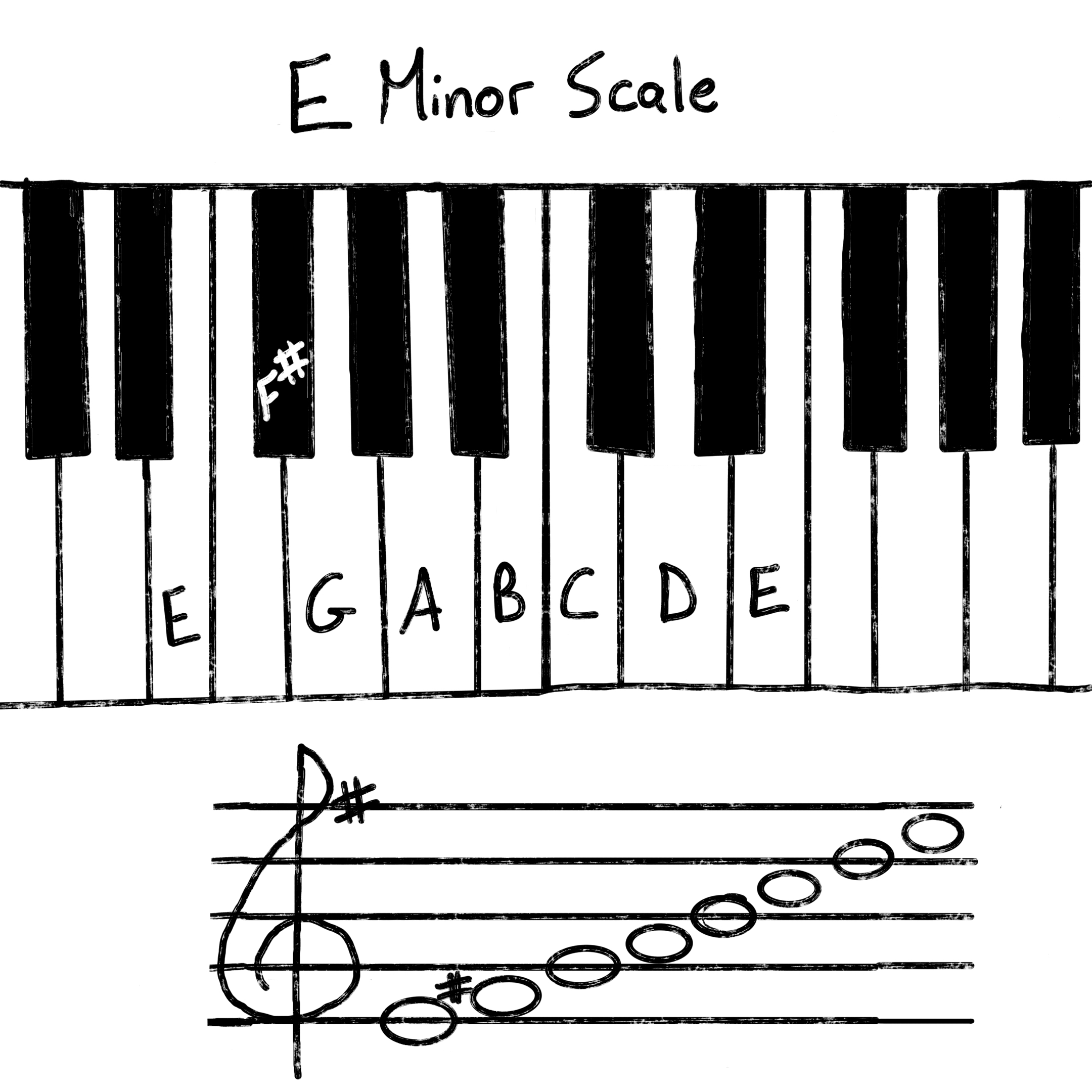
E Minor Chords How To Play & Build Them Music Maker Gear
E Minor Scale This guitar scale reference contains the notes, formula, structure, positions, chords, and modes for the E Minor scale. For an in-depth lesson on the minor scale, please see Minor Scale Positions & Theory. Notes of E Minor Scale The E Minor Scale contains one sharp, F#. The rest of the notes are all naturals.
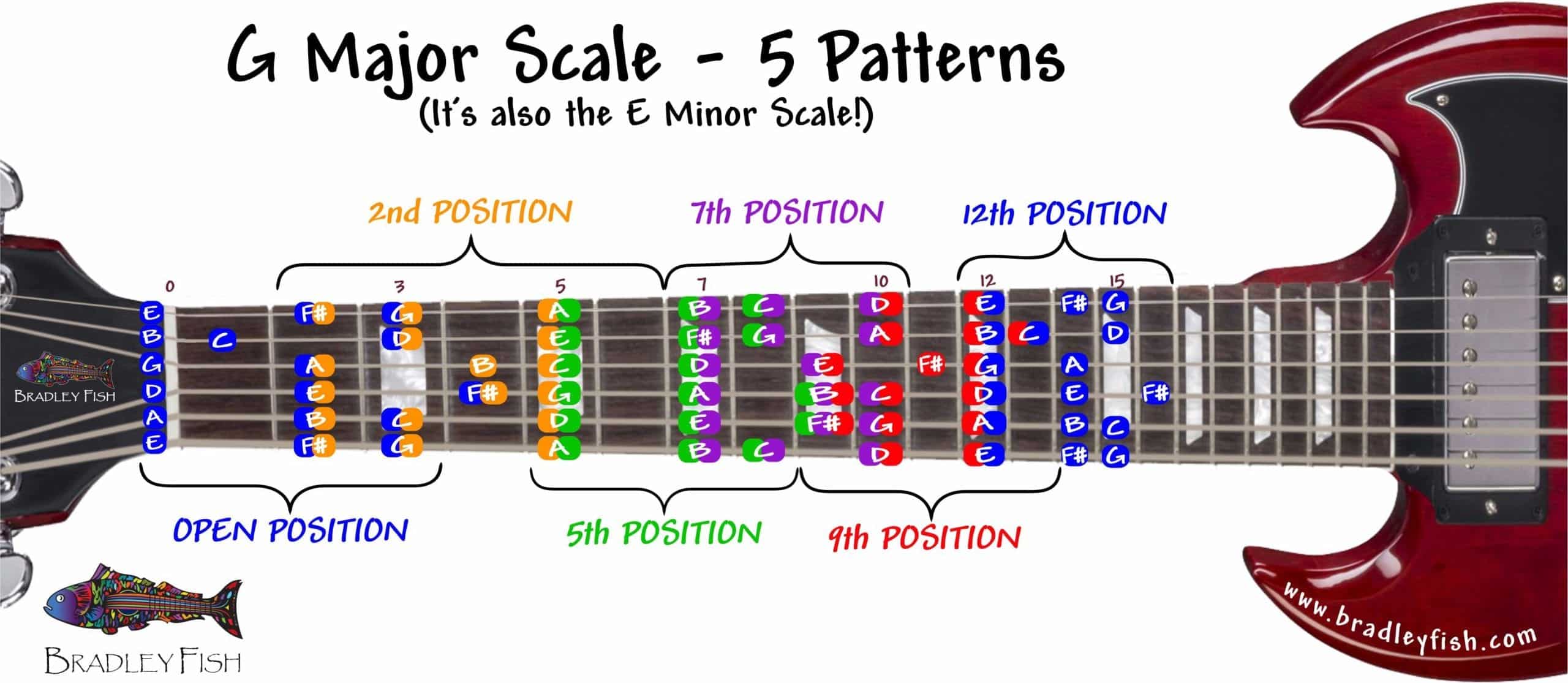
Best E Minor Scale Guitar Archives Bradley Fish
The E Minor Scale Key Signature Relative Keys The relative keys of E Minor are: G Major D Mixolydian A Dorian C Lydian B Phrygian F♯ Locrian About The Key Of E Minor The key of E Minor has a key signature of 1 sharp (F#). The E Minor scale has the notes E, F#, G, A, B, C, and D.
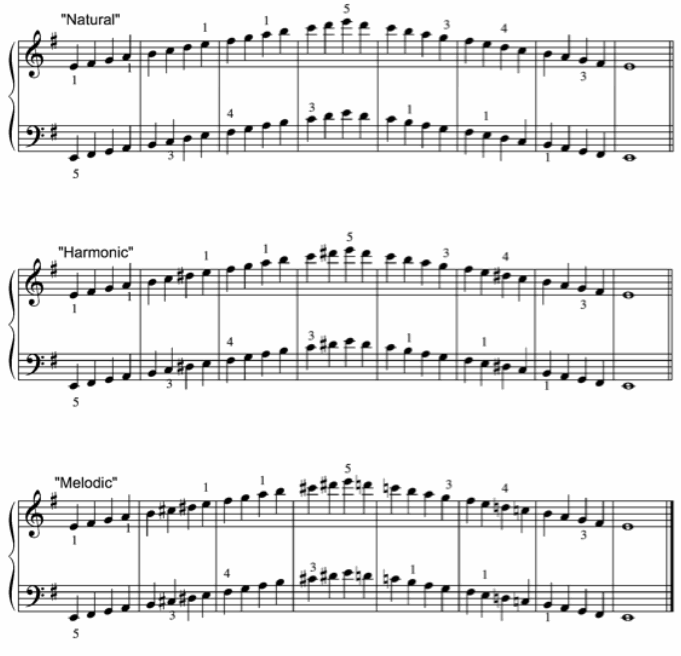
E minor scales
The E minor scale is an excellent way to learn some new sounds on your guitar. Right away, you'll notice that the E minor scale sounds sadder and darker than bright and cheery major scales. This musical mood swing comes down to the difference between major and minor.
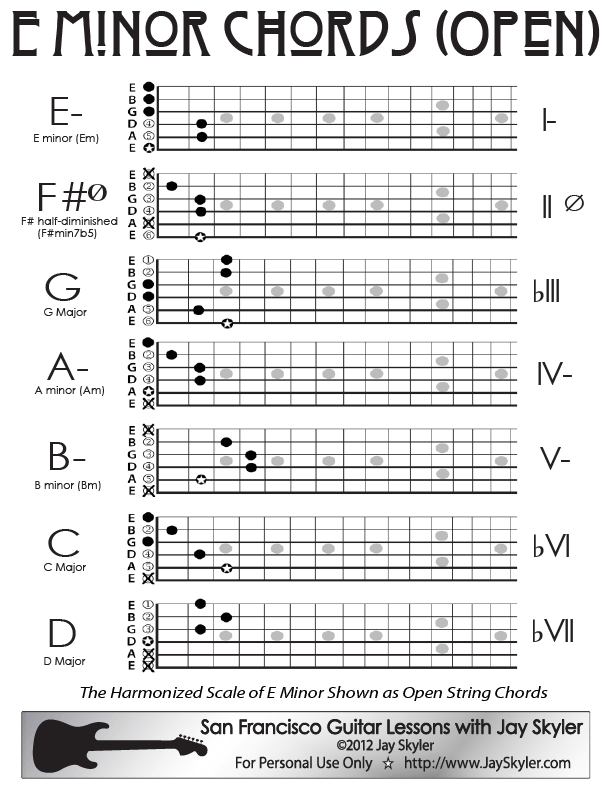
E Minor Guitar Chord Chart Open Position by Jay Skyler
June 4, 2022December 25, 2021 by Cheanné Lombard In this article we will explore some most commonly used shapes for E minor scale. But before that it is necessary to learn the basics of how a minor scale is built so that you can create your own shapes in the future to save a whole lot of time.

E Minor Pentatonic
The popularity of this scale centres around versatile it is and how easy it is to play and improvise with. The E Minor Pentatonic scale consists of 5 notes: E, G , A, B, D. The scale is constructed by using the 1st (root), 3rd (b3), 4th (p4), 5th (p5) and 7th (b7) degrees of the natural minor scale. You can think about it as a gaped or.
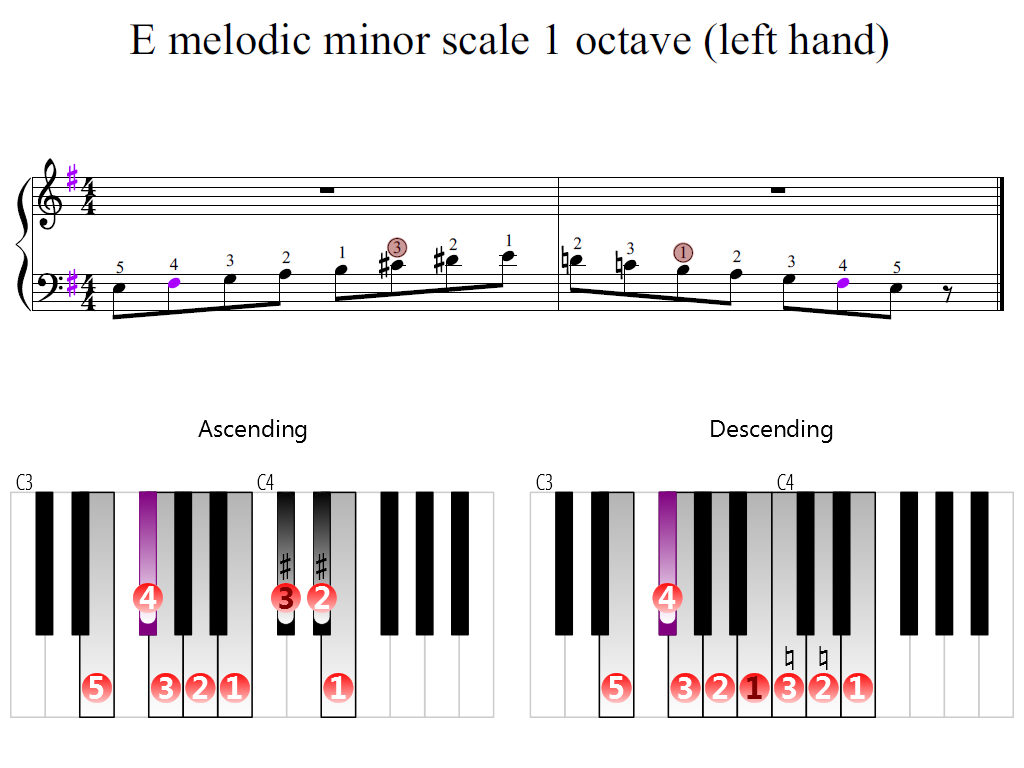
E minor scale
Minor scales have a dark and mysterious sound that is used to create tension and emotion in music. They're essential scales to learn for composers and musicians, but they can be a bit confusing as there are three different types. In this post, we're going to be exploring the natural, melodic, and harmonic forms of E minor scale.
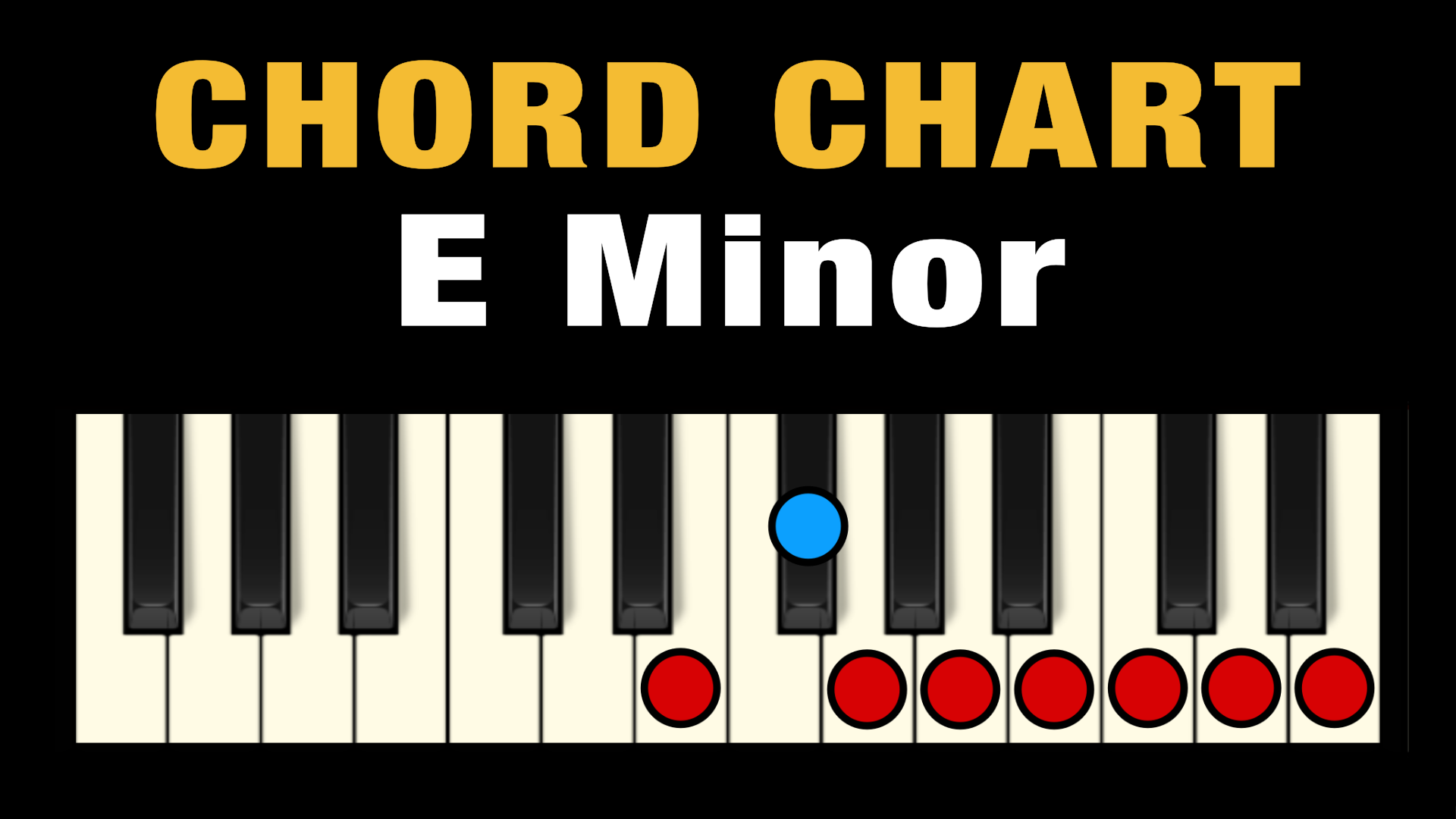
Chords in E Minor (Free Chart) Professional Composers
E minor is a minor scale based on E, consisting of the pitches E, F ♯, G, A, B, C, and D. Its key signature has one sharp. Its relative major is G major and its parallel major is E major. [1] The E natural minor scale is: Changes needed for the melodic and harmonic versions of the scale are written in with accidentals as necessary.

E Minor Scale Piano Piano Daddy
Consequently, both scales are essentially the same except for the starting note — E for E minor and G for G major. The relative minor of a major key is always three half-tones lower. This means that you can easily find the relative minor of any major key by simply counting down three half-tones or three frets on your guitar.
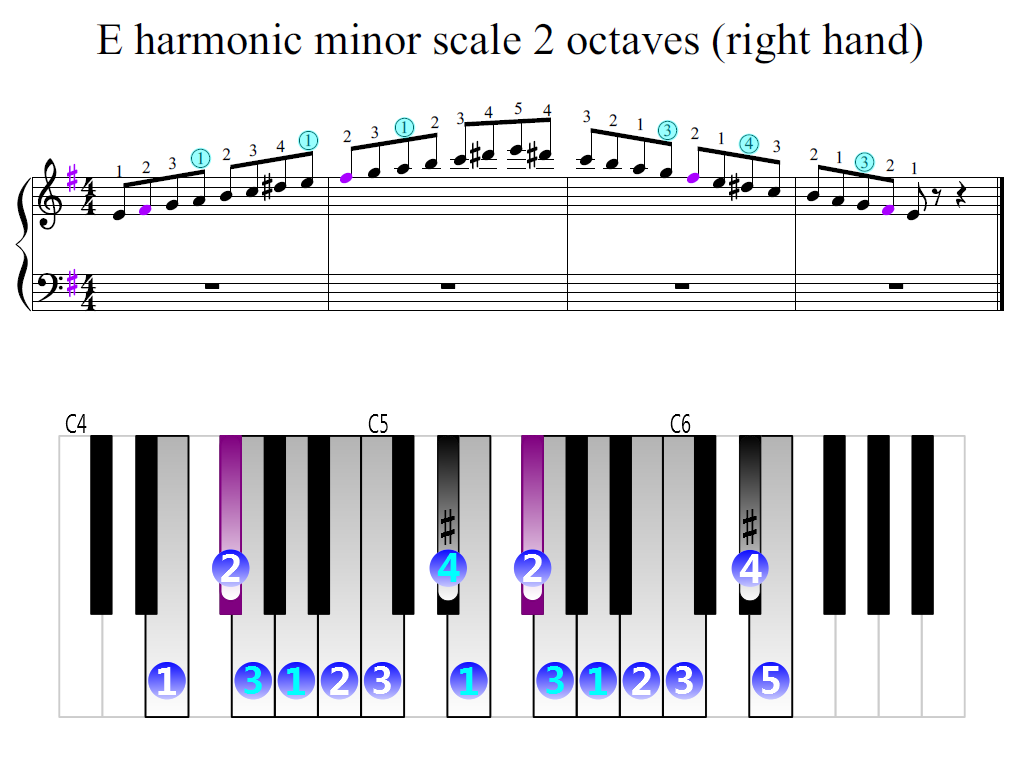
E minor scale garryvina
The E minor pentatonic scale is one of the most popular scales used by guitarists in a variety of genres of music. For the uninitiated, the E minor pentatonic scale is an abridged version of the E minor scale, with the pentatonic version having two notes removed.